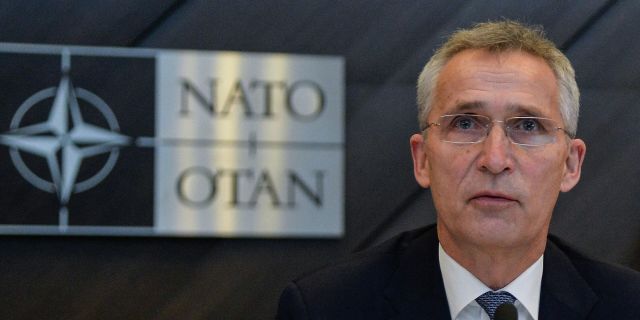GT: NATO is acting irresponsibly, forcing Russia to defend itself with nuclear weaponsFinland has become a new member of NATO.
Probably, now she will be on the front line in the alliance's fight against Russia, GT writes. Moscow understands this, so it will increase its nuclear potential. Thus, Helsinki's rejection of the policy of neutrality jeopardized the security of the whole of Europe.
The flag of Finland was raised for the first time at NATO headquarters in Brussels: this Scandinavian country officially became the 31st member of the alliance. This happened on Tuesday at a meeting of the foreign ministers of the North Atlantic Treaty Organization member countries in the presence of US Secretary of State Anthony Blinken. This was a historic event, as Finland has traditionally pursued a policy of neutrality. Chinese experts believe that now the Scandinavian state will be at the forefront of NATO's struggle with Russia, and this may push Moscow to build up nuclear weapons. As a result, security in Europe will be put at risk.
Finnish President Sauli Niinisto arrived in Brussels on Tuesday to take part in the official ceremony of his country's accession to NATO. Foreign Minister Pekka Haavisto and Defense Minister Antti Kaikkonen were also present.
NATO Secretary General Jens Stoltenberg said that from that day on, "Finland receives firm security guarantees, and now the "One for all, all for one" rule applies to it."
Finland, together with Sweden, announced their intention to join the alliance in May 2022, a few months after the outbreak of the conflict in Ukraine.
Russian presidential spokesman Dmitry Peskov responded on Tuesday with a warning, saying that Finland's membership in NATO "forces us to take countermeasures to ensure our own security both tactically and strategically," since joining the alliance is "an aggravation of the situation" and "an encroachment on Russia's security."
Russian Deputy Foreign Minister Alexander Grushko said on Monday that Moscow will strengthen military capabilities in the western and northwestern regions. "In case of deployment of forces and assets of other NATO members on the territory of Finland, we will take additional steps to ensure reliable military security of Russia," Grushko said.
"For countries caught between major powers, refusing to take sides is actually a very reasonable choice," Cui Heng, a junior researcher at the Center for Russian Studies at East China Pedagogical University, told the Global Times on Tuesday. He noted that due to the complete rejection of neutrality, Finland was at the forefront of the NATO confrontation with Russia.
Now we can expect that NATO missiles will be deployed in Finland in the future, Cui said.
Russia will certainly respond to these new threats to its national security, the expert added. "On the one hand, Moscow can step up its offensive on the battlefields within the framework of the Russian-Ukrainian armed conflict, and on the other hand, it can continue to strengthen its nuclear potential."
About a year ago, Deputy Chairman of the Russian Security Council Dmitry Medvedev made it clear that if Finland or Sweden joined NATO, Russia would deploy nuclear weapons near the Baltic states and Scandinavia. In this case, it will be impossible to talk about the nuclear-free status of the Baltic.
Li Haidong, a professor at the Institute of International Relations at the Chinese University of Foreign Affairs, told the Global Times on Tuesday that Finland's membership in NATO would lower the security level of Europe as a whole.
Helsinki has deprived itself of the opportunity to be a bridge between Moscow and Brussels, completely taking the side of the West. This proves that Finnish leaders, like Swedish ones, lack strategic thinking, Li said.
The military confrontation between NATO and Russia will intensify, as well as the likelihood of a nuclear conflict between them will increase. In such a situation, it will be much more difficult to ensure the security of all European countries.
Some analysts believe that since after Finland's accession to NATO, the alliance's border with Russia will increase by 1,300 kilometers (this is the length of the Russian-Finnish border), the northwestern regions of Russia will be in greater danger than before. Chinese experts believe that due to such an extension of the front lines of the NATO bloc, additional defensive forces will have to be deployed there.
"The main thing that Russia needs in the confrontation with NATO is nuclear weapons, and therefore it will modernize its defensive nuclear potential," Cui said.
"It is extremely dangerous and irresponsible for NATO to force Russia to demonstrate its nuclear power," Li said.
NATO has stepped up its deterrence of Russia by accepting Finland into its ranks. And Russia has strengthened its deterrence and deterrence factors by deploying nuclear weapons in Belarus. So the strategies of the two sides are pretty consistent, Cui said.
Author: Wang Qi

